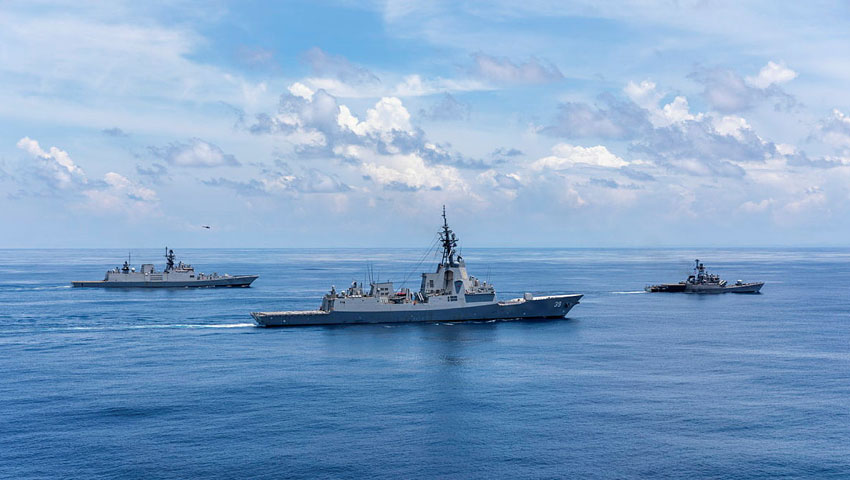Wargaming is a concept as old as warfare itself. Despite the advent of powerful simulation and artificial intelligence supported technologies testing the mettle of officers and decision-makers, board games are helping to support the way in which the ADF prepares for future tactical and strategic scenarios.
To continue reading the rest of this article, please log in.
Create free account to get unlimited news articles and more!
For defence officials and decision-makers in Defence Offices at Russell, a board game developed by the US-based think tank, RAND Corporation, called Hedgemony is helping to sharpen the decision making processes and the tactical and strategic acumen of Australian Defence Force personnel.
Although developed for the United States, the framework and decisions made in Hedgemony resonate well for Australia’s strategic realities and the challenges emerging in the Indo-Pacific.
Defence’s Director of Strategic Wargaming Darren Huxley, argues the game plays an important part in demonstrating how it could be useful for Defence’s strategy and policy areas.
Huxley explained, “At that level, we usually rely on scenario-driven seminar-type games to start conversations around strategic choices. Although you might have the same framework, the choices available to players in a seminar game are wildly different, depending on their background.”
Created by RAND Corporation, Hedgemony was conceptualised to support US defence strategists and policymakers facing the perennial challenge of developing capstone documents that can coherently articulate and guide how the US Department of Defense will deliver and maintain combat-credible military forces to deter war and provide national security in alignment with national strategy.
Against this backdrop, RAND researchers developed Hedgemony, a wargame designed to teach US defence professionals how different strategies could affect key planning factors in the trade space at the intersection of force development, force management, force posture, and force employment.
The game presents players, representing the United States and its key strategic partners and competitors, with a global situation, competing national incentives, constraints, and objectives; a set of military forces with defined capacities and capabilities; and a pool of periodically renewable resources.
The players are asked to outline their strategies and are then challenged to make difficult choices by managing the allocation of resources and forces in alignment with their strategies to accomplish their objectives within resource and time constraints.
Huxley added further details, explaining, “We do most of our work at the policy level, where we pull apart a question or take assumptions that have come out of force design.
“The framework itself will never answer the question; it provides the basis from which we can discuss the problem, and lead into submissions to Defence committees or government,” Huxley added.
Hedgemony focuses on how resources are allocated to building capability within the blue force, while also reacting to decisions made by red players.
Although similar systems-based games are used at the tactical level, they largely don’t exist to evaluate strategic options or outcomes.
“We can ask the Chief of the Defence Force, with all of his experience, why he chose one option over another. All of his experience probably tells him which option is right, but we can add that to the collected experience of thousands of years of officers’ decision-making by wargaming across the department,” he said of Hedgemony.
Developing an Australian-centric version of Hedgemony is something Huxley believes has some merit, saying, “But an Australian-based version of Hedgemony’s framework, focused less on world policing and more on influence and diplomacy, would be beneficial to more organisations than just Defence.”
Departments like Foreign Affairs and Trade could use it to evaluate diplomatic decisions, or Treasury could discuss the ramifications of a new policy.
“Ultimately, any form of wargaming is about making a decision and then analysing why that was made. It provides us with a space where we can practise decision-making against a live, thinking and reactive opponent,” Huxley explained.
Huxley added, “The Hedegmony demonstration was about the utility of the game in an Australian context, but also about advertising the value of this sort of activity for strategy and policy conversations across Defence and government.”
The RAND Corporation is a research organisation that develops solutions to public policy challenges to help make communities throughout the world safer and more secure, healthier and more prosperous. RAND is non-profit, non-partisan, and committed to the public interest.

 Login
Login







